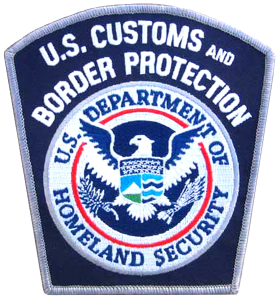 Access to a safe supply of fresh fruit and vegetables is a luxury that most Americans probably take for granted, but it does not happen without the vigilance of agricultural specialists who have careers at U.S. Customs and Border Protection (CBP). More familiar jobs at CBP include border patrol agents as well as aviation and marine enforcement agents. “Eternal Vigilance is the Price of Liberty,” an inscription over one of the entrances to the National Archives, reflects the importance of the work that CBP does every day.
Access to a safe supply of fresh fruit and vegetables is a luxury that most Americans probably take for granted, but it does not happen without the vigilance of agricultural specialists who have careers at U.S. Customs and Border Protection (CBP). More familiar jobs at CBP include border patrol agents as well as aviation and marine enforcement agents. “Eternal Vigilance is the Price of Liberty,” an inscription over one of the entrances to the National Archives, reflects the importance of the work that CBP does every day.
Guarding the Southern Border
Border patrol agents made nearly half a million apprehensions in 2013, an increase of more than 60,000 over the previous year. Included in the 98 percent of arrests that were made on the southern border were residents of El Salvador, Honduras, Guatemala and Mexico, according to USA Today. Agents confiscated almost three million pounds of drugs, reflecting the importance of enforcement in border states.
Qualifying to work as a border control agent is difficult, and a rigorous training program helps prepare trainees for work in rough terrain and challenging conditions. After 55 days of training at the Border Patrol Academy, trainees must prove their merit by running a mile and a half course in 13 minutes or less. They must complete a confidence course within two and one half minutes and a 220 yard dash within 46 seconds. No one over the age of 40 is accepted into the training program, and knowledge of Spanish is required.
Protecting Airports and Seaports
As a component of the Department of Homeland Security, CBP agents regularly face potentially dangerous situations. Screening shipments, vehicles and passengers that cross U.S. borders provides the opportunity to seize illegal narcotics, agricultural products and vehicles. Preventing unauthorized entry to the country is a primary goal of agents, and rescuing people who get into dangerous circumstances while attempting entry is also part of the job.
Jobs in the Office of Customs and Border Protection Air and Marine service require agents to protect Americans and critical infrastructure. High tech equipment helps them detect, track and intercept illegal drugs, contraband or people at arrival ports. A commitment to prevent acts of terrorism motivates candidates to enter service as an air or marine interdiction agent.
Keeping the U.S. Food Supply Safe
Agricultural specialists use degrees in biology, plant pathology, botany and entomology to protect American agriculture and to prevent threats from diseases and biological agents. Seizure of contaminated items or products that are prohibited contributes to maintaining a safe food supply. The ability to pay attention to details is an attribute of an agricultural specialist. Recognizing signs of dangerous commodities and flagging them for laboratory testing or destruction requires a high level of vigilance.
Working for the United States government provides compensation that includes a competitive salary, a health insurance program, and a generous leave policy. All workers receive 10 paid holidays each year in addition to 13 to 26 vacation days, depending on years of service. An additional 13 paid sick days are available for use when needed. The privilege of doing important work for the country and receiving excellent benefits can make careers at U.S. Customs and Border Protection worth considering.
Related Article: Can I Get a Job as a Translator in Emergency Management?